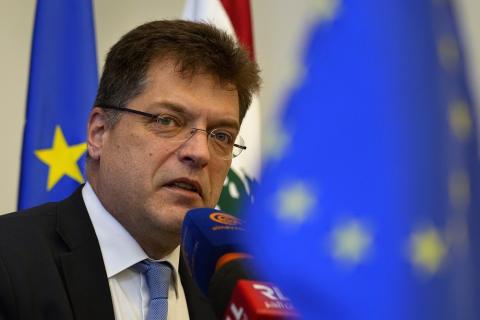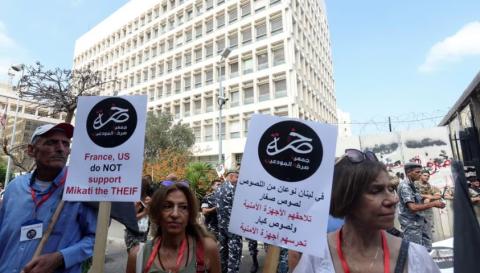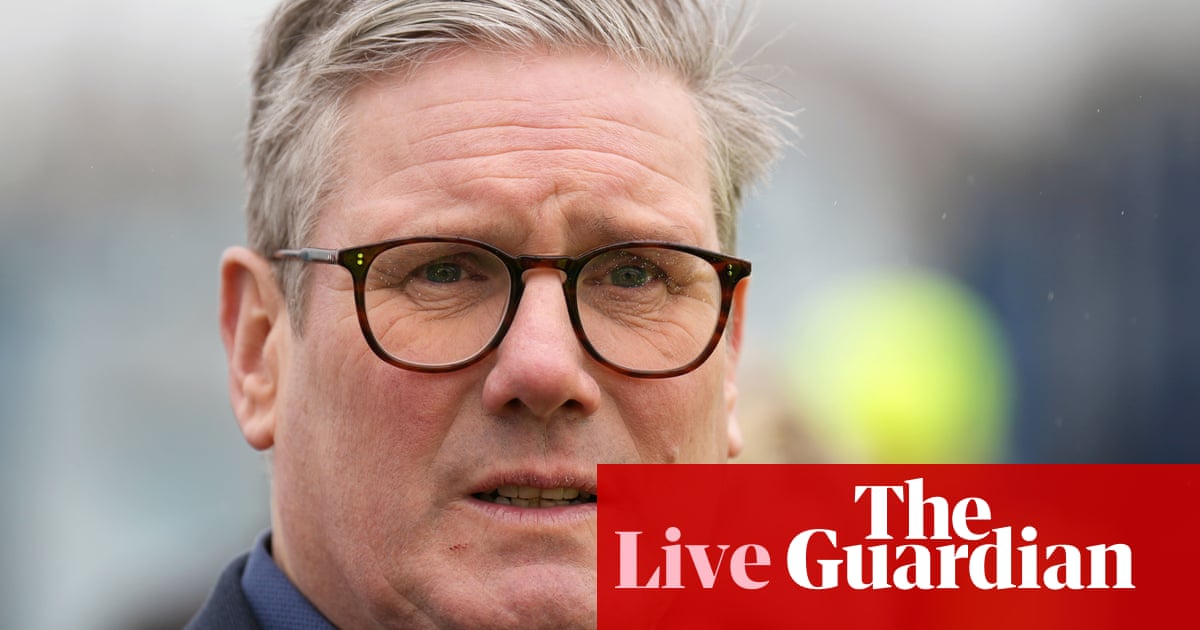
The long-brewing financial crisis came to a head last October when big protests erupted against the corruption and bad governance of the sectarian elite
Geagea, whose Lebanese Forces party quit government early into the October protests, said Prime Minister Hassan Diab’s government had not enacted any reforms
BEIRUT: Lebanon has scant chance of securing badly needed aid from the International Monetary Fund as the government fails to enact reforms demanded by donors to address its financial crisis, opposition politician Samir Geagea said on Friday.
“Unfortunately, (matters) are going from bad to worse,” he said. “It could, in my opinion, reach social unrest, and social violence.”
The long-brewing financial crisis, the biggest threat to Lebanon’s stability since the 1975-90 civil war, came to a head last October when big protests erupted against the corruption and bad governance of the sectarian elite.
The local currency has since more than halved in value and savers have been frozen out of bank accounts. Unemployment and inflation have soared in the import-dependent country.
Geagea heads the Lebanese Forces, the second-biggest Christian party in parliament, and opposes the Iran-backed Shiite group Hezbollah and its Christian ally, President Michel Aoun’s Free Patriotic Movement, which both back the government.
“The situation in Lebanon is not unsalvageable. But from the moment the crisis erupted on October 17, did you see any change in the management of the state?” said Geagea, who is politically aligned with the United States and its Gulf Arab allies.
“If the behavior at the top of the state remains the way it is, how can we save the country?”
Geagea, whose party quit government early into the October protests, said Prime Minister Hassan Diab’s government had not enacted any reforms. With no alternative ways to secure aid, the government launched IMF negotiations in May. But Geagea said the chances of securing support were “very, very scant.”
“From the moment this government took office the whole world was waiting for reforms. So far, not one of the required reforms have happened,” Geagea said. “Nobody is going to give Lebanon any assistance before the state carries out the required reforms.”
The government has produced an economic recovery plan which sets out vast losses in the financial system and is serving as the basis for the IMF negotiations.
Geagea said the government had failed to fix two big problems: smuggling to Syria, which he blamed on Hezbollah, and a state-run electricity sector that bleeds up to $2 billion a year, which he blamed on the Free Patriotic Movement.
Hezbollah, which is heavily armed and listed as a terrorist group by the United States, has long denied it has anything to do with smuggling to Syria. Free Patriotic Movement leader Gebran Bassil, Aoun’s son-in-law, has said plans for fixing Lebanon’s electricity have been obstructed by others.











